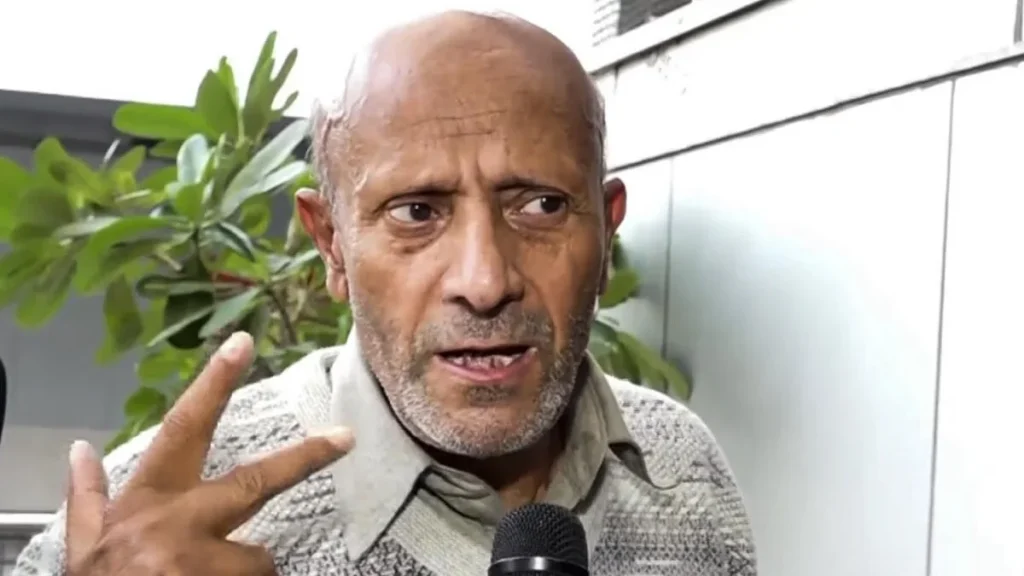Introduction
Engineer Rashid Hunger Strike: Incarcerated Member of Parliament (MP) and Awami Ittehad Party (AIP) leader, Engineer Rashid, is on an indefinite hunger strike inside Tihar Jail. As of February 4, 2025, he has reportedly lost five kilograms in just five days. Despite his deteriorating health, his family and supporters affirm that his spirit remains unbroken.
His hunger strike underscores broader concerns about political suppression and the denial of democratic representation. Elected with a significant mandate from the Baramulla constituency, Rashid remains unable to fulfill his parliamentary duties due to his prolonged incarceration. His case raises pressing questions about judicial efficiency, constitutional rights, and fair governance.
Why Engineer Rashid Hunger Strike Matters
The hunger strike is not just a personal act of resistance—it symbolizes a broader struggle for justice, democracy, and political representation. His son, Asrar Rashid, has publicly stated that they refuse to bow down, urging national attention to the cause.
Political activists, human rights organizations, and Rashid’s supporters argue that his continued imprisonment raises serious questions about due process and legal transparency. The AIP leader’s indefinite fast is a desperate attempt to draw attention to his legal battle and the failure to ensure his representation in Parliament.
Key Legal Battles and Challenges
Pending Bail Decision
- His legal team has been fighting for regular bail since August 28, 2024.
- The Special NIA Court declined jurisdiction, stating the case should be heard by an MP/MLA court.
- Despite this, the case has not been transferred, leaving Rashid in legal limbo.
- His interim bail request was also rendered ineffective due to the unresolved jurisdictional issue.
Denial of Parliamentary Representation
- Rashid has missed three crucial Parliamentary sessions due to legal delays.
- His absence means that the voices of his constituents remain unheard in national decision-making.
- The failure to resolve his case promptly has broader implications for democratic governance.
The Political and Humanitarian Implications

1. Democratic Representation at Risk
- Rashid’s case sets a troubling precedent for elected representatives facing prolonged legal battles.
- His hunger strike underscores the urgent need for legal clarity and procedural efficiency.
- Many Kashmiris feel their electoral choice has been rendered meaningless due to bureaucratic and judicial hurdles.
2. AIP’s Advocacy for Justice
- The AIP has launched a “Release Er. Rashid Campaign”, rallying public and political support.
- Party spokesperson Inam Un Nabi reaffirmed their commitment to constitutional principles and expressed confidence that justice will prevail.
- Political leaders and activists across party lines are urging swift judicial intervention.
3. Human Rights and Legal Transparency
- Rashid’s prolonged incarceration and hunger strike have raised humanitarian concerns.
- Legal experts and human rights organizations highlight due process violations.
- The case has drawn attention from international observers, adding pressure on authorities.
Legal Developments and Next Steps
- On February 4, Rashid’s lawyer presented fresh arguments before the High Court, seeking clarity on the jurisdictional confusion.
- The High Court has issued a notice to the Registrar General to determine the case’s jurisdiction.
- The next court hearing is scheduled for February 6, 2025, offering a critical moment for Rashid’s legal battle.
- If bail is not granted, legal experts warn that his hunger strike could escalate into a severe health crisis.
Public and Political Reactions
- Civil society groups and opposition leaders have started calling for urgent intervention.
- Protests demanding Rashid’s release have taken place in various parts of Kashmir.
- Many believe this case could set a precedent for future political detentions and delays in the justice system.
Conclusion: A Call for Fair Justice and Representation
The case of Engineer Rashid has far-reaching implications beyond one individual—it raises urgent questions about judicial delays, political representation, and human rights. His indefinite hunger strike highlights the growing concern over legal transparency and fair governance. As his supporters await the February 6 court hearing, many hope that justice will finally be served, ensuring that the people of Kashmir are not left unrepresented in Parliament.
The resolution of Rashid’s case could mark a pivotal moment in the fight for political fairness. It is imperative for the judiciary to act swiftly and decisively to ensure justice, transparency, and democratic accountability.


